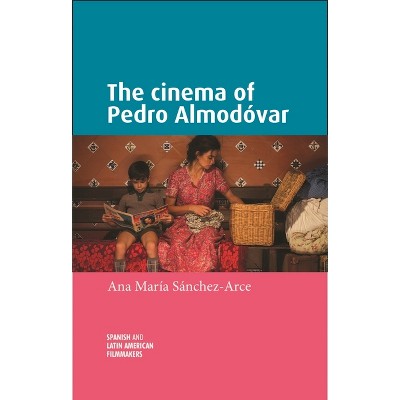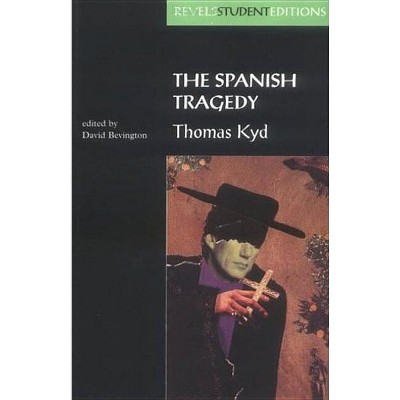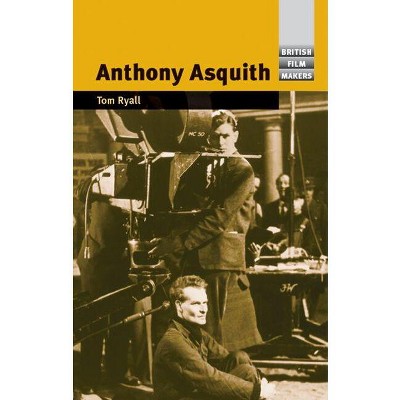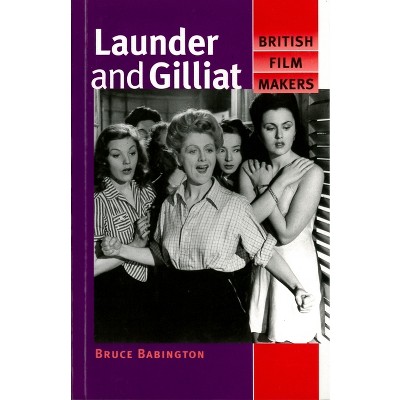The Cinema of Cecilia Bartolomé - (Spanish and Latin-American Filmmakers) by Sally Faulkner

About this item
Highlights
- Were it not for authoritarian state censorship, Cecilia Bartolomé's name would figure alongside those of her contemporaries Agnès Varda and Claire Denis as a pioneering feminist filmmaker of the twentieth century.
- About the Author: Sally Faulkner is Professor of Spanish (1933) at the University of Cambridge
- 264 Pages
- Performing Arts, Film
- Series Name: Spanish and Latin-American Filmmakers
Description
About the Book
Fusing a distinctive feminist aesthetics with a startling vision of twentieth-century Spain, the work of Cecilia Bartolomé casts a new light on the histories of both Spanish national film, and transnational women's cinema. This book places Bartolomé among other key auteurs of national Spanish, and transnational feminist, cinema.Book Synopsis
Were it not for authoritarian state censorship, Cecilia Bartolomé's name would figure alongside those of her contemporaries Agnès Varda and Claire Denis as a pioneering feminist filmmaker of the twentieth century. With this bold claim, this book seeks both to write the history of Bartolomé's extant filmography, and speculate about censored and un-filmed work, thereby fashioning a new way of writing a feminist creative life in film.
The first volume on this director to be written in English, The Cinema of Cecilia Bartolomé is also the first volume on the director published in any language for over twenty years. By focusing on Spanish-language cinema of the 1960s-90s, the period when feminism, like democracy, was re-born and seemingly consolidated in Spain, the study brings historical depth and transnational reach to current debates in the wake of #MeToo.
From the Back Cover
Fusing a distinctive feminist aesthetic with a startling vision of twentieth-century Spain, the work of Cecilia Bartolomé casts a new light on the histories of both Spanish national film, and transnational women's cinema.
The Cinema of Cecilia Bartolomé analyses the director's shorts, medium- and feature-length films, television work, as well as her un-filmed scripts. Deploying extensive archive work, the book adopts an auteurist perspective, but nuances it to include speculative approaches to censored and un-filmed work, thereby fashioning a new way of writing a feminist creative life in film. The volume also includes a new interview with the director, the first to be published in English. Each text is placed in dialogue with intersectional feminism, including Girlhood Studies (the approach to ¡Vámonos, Bárbara!), political activism (a focus on the diptych documentaries) and race (the framework in which Lejos de Áfricais placed). The book also highlights not only Bartolomé's opposition to dictatorship, but that each text must be placed within the contexts of socio-political developments in Spain. By focusing on Spanish-language cinema of the 1960s-90s, the period when feminism, like democracy, was reborn and seemingly consolidated in Spain, the study brings historical depth and transnational reach to current debates in the wake of #MeToo, and places Bartolomé among other key auteurs of Spanish and feminist cinema.About the Author
Sally Faulkner is Professor of Spanish (1933) at the University of Cambridge










